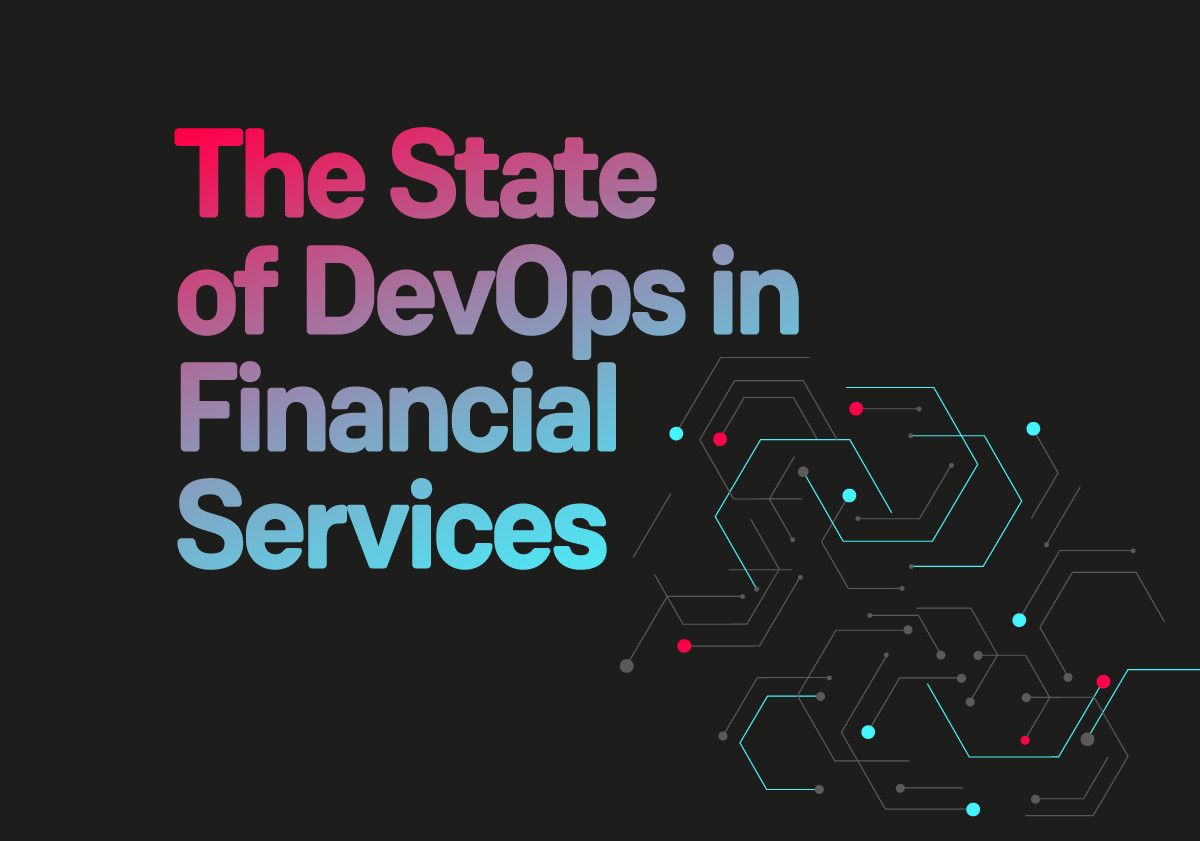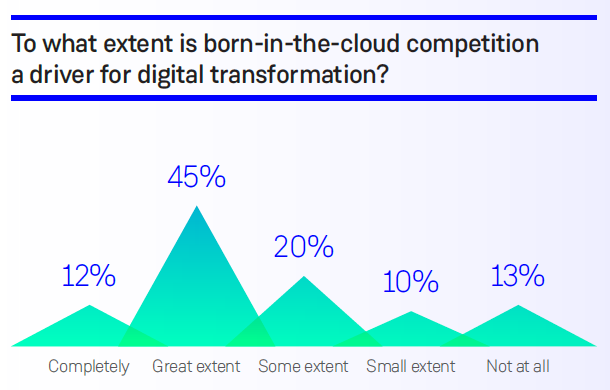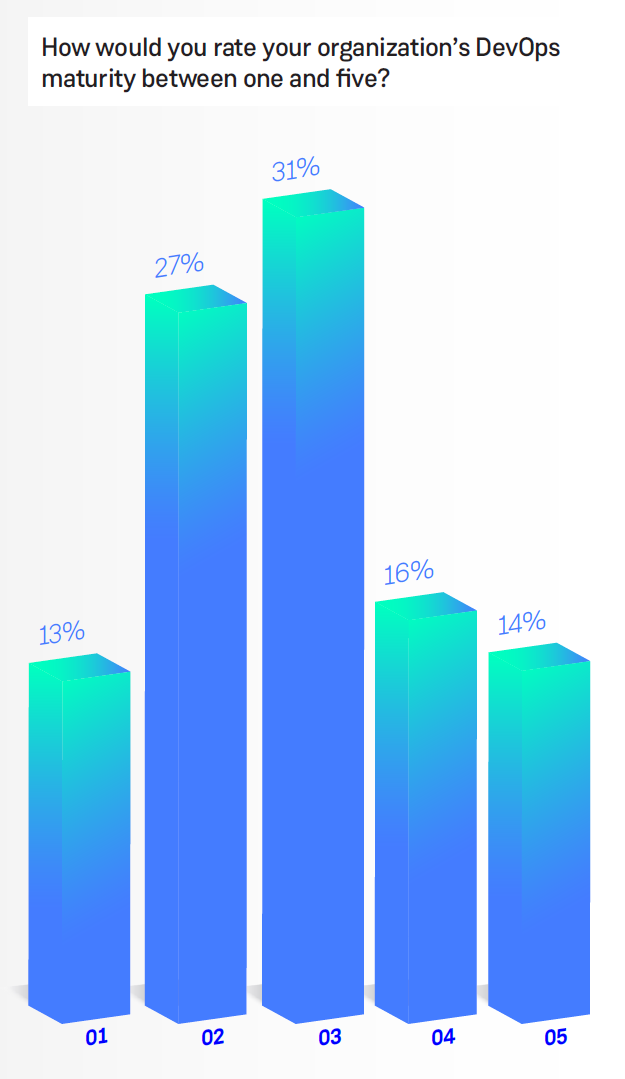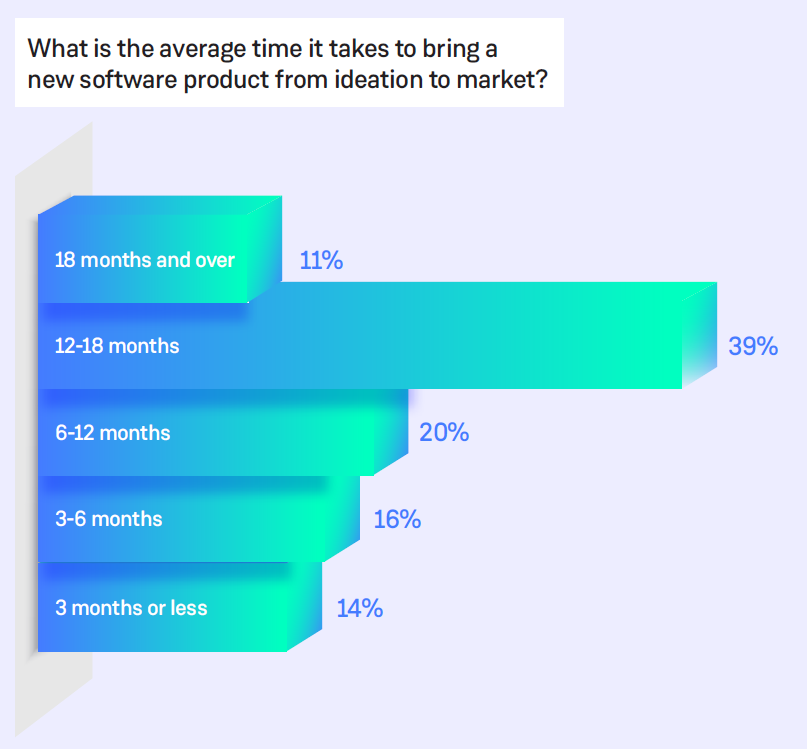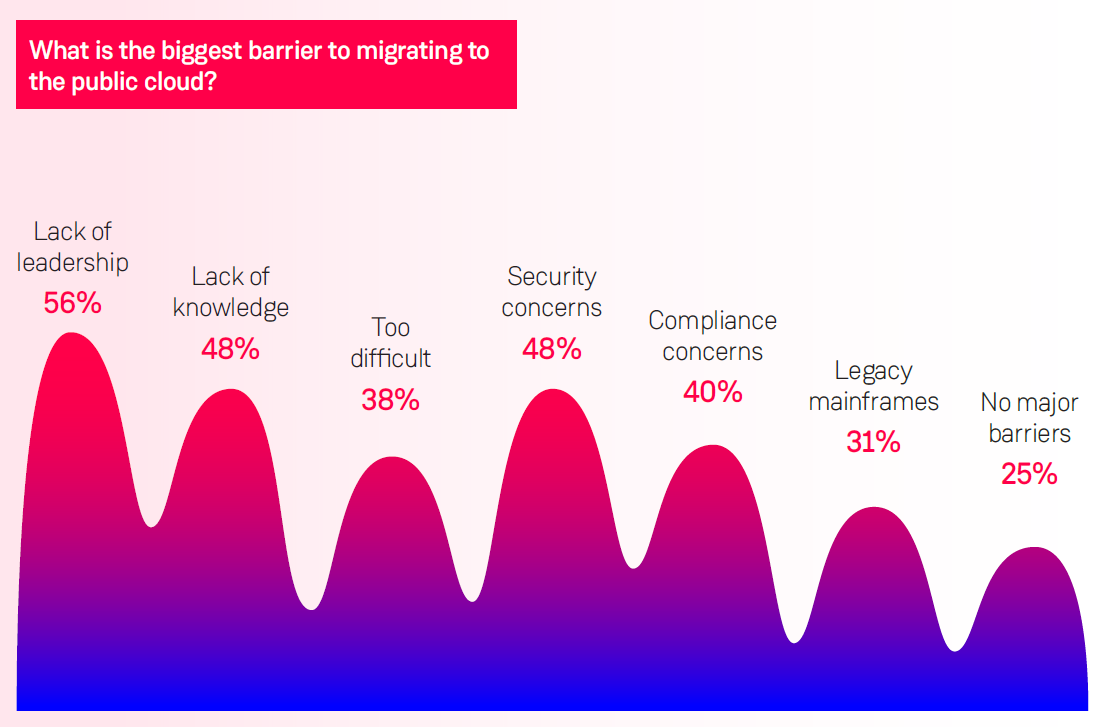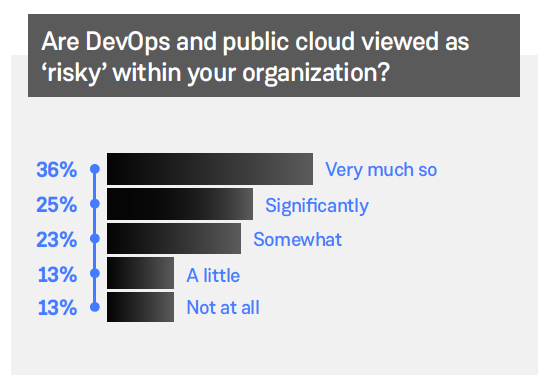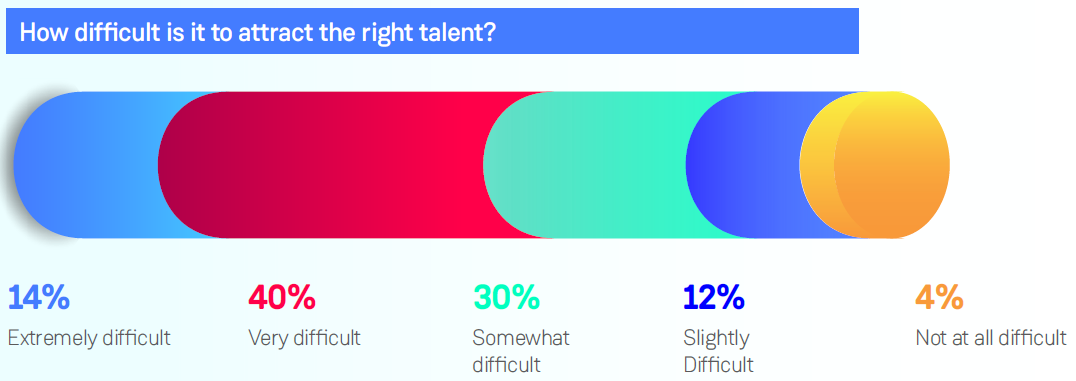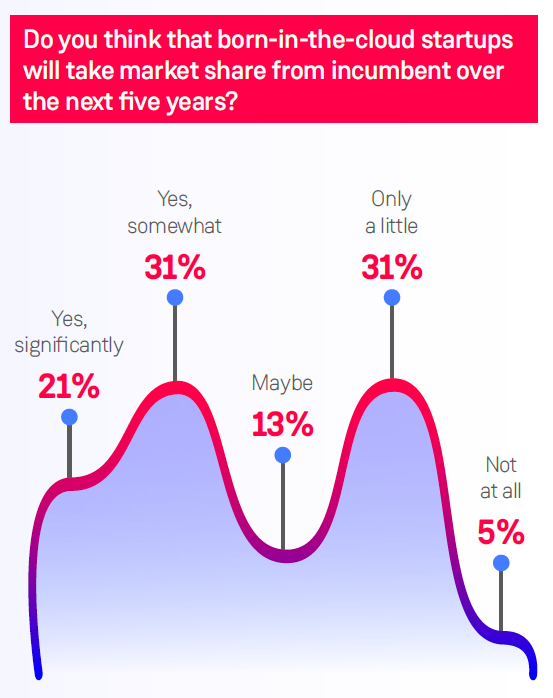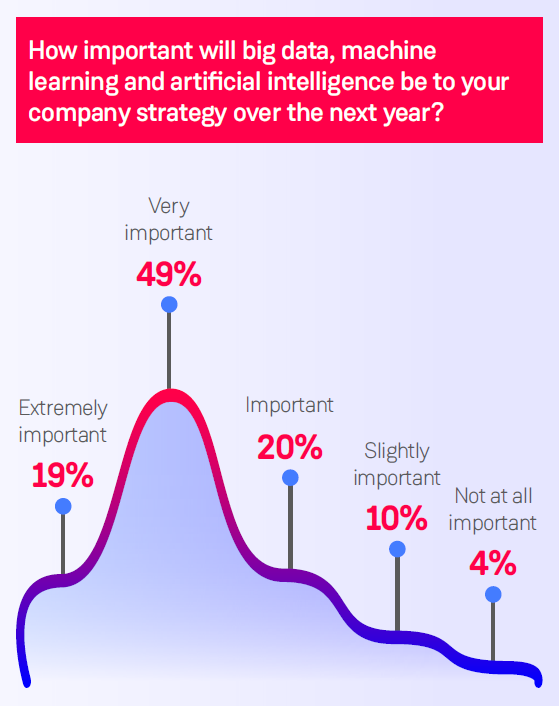Introduction to the State of DevOps in Financial Services: Top 10 Findings
Want more than just an introduction? Read the whole The State of DevOps in Financial Services report here.
The State of DevOps in Financial Services
We reached out to IT professionals in financial services to gain a greater understanding of innovation and DevOps in their organization.
We received responses from 165 professionals, ranging from engineers to CTOs working at a range of financial services organizations from FinTech startups and investment funds to insurance firms and the biggest global banks.
Check out this White Paper to find out everything you need to know about the world of DevOps in financial services.
Why study the state of DevOps in financial services?
Because we’re at a tipping point. It’s no longer only the innovators that are adopting DevOps operating models in the cloud; we’ve shifted into the ‘early majority’ phase of the adoption curve.
So earlier this year Contino reached out to IT professionals in financial services to gain a greater understanding of innovation and DevOps in their organization. We received responses from 165 professionals, ranging from engineers to CTOs working at a range of financial services organizations from FinTech startups and investment funds to insurance firms and the biggest global banks.
We sought to find the answers to the following questions:
- How important is digital innovation to financial services?
- What's driving digital transformation?
- How mature are DevOps practices?
- What role does the cloud play?
- Are organizations struggling with security and compliance?
- Is there a skills shortage?
- Are incumbent enterprises about to be 'eaten' by FinTech SMEs?
- What do the next few years hold for this rapidly-changing industry?
Many really interesting insights revealed themselves. Here are our top 10!
Top 10 Findings
01: 57% of companies think that competition from born-in-the-cloud startups [1] is “very much” or “completely” a driver for digital transformation
Clearly, competition is creating the pressure for digital transformation. Interestingly, “driving new revenues” and “reducing costs” were the least-cited drivers for transformation in our research. This is not a short-term financial matter. It’s about something bigger than that: transforming the business model of the organization to focus on innovation and customer expectations to ensure long-term survivability. It’s a paradigm shift, not a short-term win.
02: The majority of respondents (58%) rate their DevOps maturity two or three out of five
Only 14% gave themselves full marks – the tribe of DevOps Ninjas is small! A similar number (13%) rated themselves only one out of five – down in the DevOps dumps.
Most organizations, then, report fairly middling DevOps capability, with a few companies ahead of the curve and a few lagging behind. Given the importance of DevOps to effective digital innovation, these findings are perhaps a slightly underwhelming, but provide a good foundation for progress to higher levels of DevOps maturity in the industry.
03: Only 12% of respondents can bring a new software product to market in three months or less
The vast majority of respondents struggle to deliver new software at speed and scale. Most commonly they need 12-18 months to bring a new product to market.
Attitudes to DevOps and cloud are clear among those who can innovate rapidly (time-to-market of lower than three months). They use more advanced cloud services (nearly 50% of innovators use serverless and 37% use AI) and they also deem DevOps to be less risky (50% say it’s not risky “at all”) than those who take 12 months or more (see p.27). The latter see DevOps and cloud as
“very much” risky (55%) and have only “a few” of the skills required (54%).
There is a clear link between advanced cloud services, acceptance of modern ways of working, DevOps maturity, on the one hand and rapid software delivery on the other.
04: The most commonly-cited barriers to rapid software releases are last-minute security tests and regulatory and compliance concerns
A wide range of barriers to rapid software delivery exist. First and foremost is last-minute security tests and remediation, cited as a major barrier by 48% of respondents. A related issue comes second: compliance and regulatory concerns (36%).
This confirms the status of security and compliance as more of an ‘afterthought’ in the software delivery process. It also speaks to the importance of including security and compliance at all stages of the software delivery pipeline. This seems to be a prerequisite of rapid software delivery.
05: 33% of applications are hosted in the public cloud
Cross-referencing cloud usage with DevOps maturity yields noteworthy results. For those with a DevOps maturity of five, all respondents stated that they were using the public cloud in some capacity. Their workloads were fairly evenly split across public (36%), private (29%) and on-prem (35%). Interestingly, only 27% stated that provisioning infrastructure was a major
barrier to deploying at speed and scale (see pp.18-19).
By contrast, for those with a reported DevOps maturity of one, only 20% of workloads are in the public cloud, 19% in a private cloud, with 61% on-premises. Simultaneously, provisioning infrastructure was cited as the biggest barrier to deploying software at speed and scale by 71%.
Clearly, the public cloud is an important pillar of a mature DevOps practice, massively reducing the problem of infrastructure as a barrier to rapid software deployment.
06: The biggest barrier to migrating to the cloud is the lack of leadership/management support
Practically everyone (98%!) is using cloud services. Almost all organizations have dipped their toes into the cloud to some extent.
But there are different degrees of cloud involvement. The biggest barrier to cloud migration is a lack of leadership and management support. Not only did it score the highest overall (56%), but was cited as the number one barrier by 47% of respondents.
This suggests that many leaders are often stuck in more traditional mindsets and operating models, unwilling to branch out into new areas.
This is significant. Progress cannot be made without buy-in from the leadership team. Adoption of the cloud is correlated with high release rates and high DevOps maturity. Financial services leaders need to be more open to technological shifts if they are to successfully execute their digital innovation strategies.
07: Only 13% say that DevOps and cloud are “not at all” viewed as risky in the organization
How businesses calculate risk is a key determinant of their future competitive advantage, particularly regarding when and how to embark upon a paradigm shift such as DevOps.
A majority of respondents (36%) hold that DevOps and cloud are “very much” viewed as risky within their organization. Only 26% view DevOps and cloud as either “a little” or “not at all” risky, demonstrating that a large majority are apprehensive of DevOps and cloud.
These are stunning statistics that speak volumes about the mediocre state of innovation in modern financial services organizations.
08: 53% find it “very” or “extremely” difficult to find the right talent
Without the right skills, any digital transformation will fall flat. Your people are the fulcrum of any innovation push.
Only 16% are able to attract the right talent easily. It seems to be difficult to attract talent, even if you are successful in ultimately doing so.
The skills shortage is real in financial services.
09: 50% of financial services organizations think that born-in-the-cloud startups will take market share from incumbents in the next five years
Interestingly, opinions are highly variable about the future of FinTech. 51% think that FinTech will “significantly” or “somewhat” take market share. 44% say that this will “maybe” occur or “only a little”. This is one of the most divisive questions so far.
The jury is still out!
However, very few (5%) think that there will be no impact whatsoever. FinTech will make a dent in enterprise domination, it’s just a question of to what extent.
10: Nearly 70% say that ML, AI and Big Data will be “very” or “extremely” important to their business strategy over the next year
This is surprising and perhaps a bit optimistic given other responses above suggesting that there is still substantial work to be done in terms of getting greater leadership buy-in, migrating more workloads to the cloud, improving DevOps maturity and reducing more basic barriers to rapid deployment – areas that are more fundamental than something like ML or AI.
When asked openly what trends will dominate over the next three years, the most common answer was AI, chiefly for analytics and business insights purposes.
Conclusion
The results from this report suggest that for most financial services organizations, DevOps and digital innovation are fundamental to developing the competitive edge necessary to thrive in the modern marketplace.
However, DevOps maturity is middling at best. With security challenges, difficulties sourcing talent and a lack of cloud infrastructure proving sizeable barriers to improvement.
The respondents sense that born-in-the-cloud startups are poised to take market share from incumbents, but don't seem to be responding as forcefully as they need to. At the same time, DevOps and cloud are seen to carry substantial risk, leaving organizations stuck between a rock and a hard place: they know they need to innovate, but fear the changes needed!
The full report - The State of DevOps in Financial Services – contains much more detail and analysis across a whole range of topics:
- Strategy, Competition and Innovation
- DevOps and Software Delivery
- The Cloud
- Security, Compliance and Risk
- Talent and Culture
- The Future of Competition and Innovation
- Enterprise versus SME
Download the report here: The State of DevOps in Financial Services.
